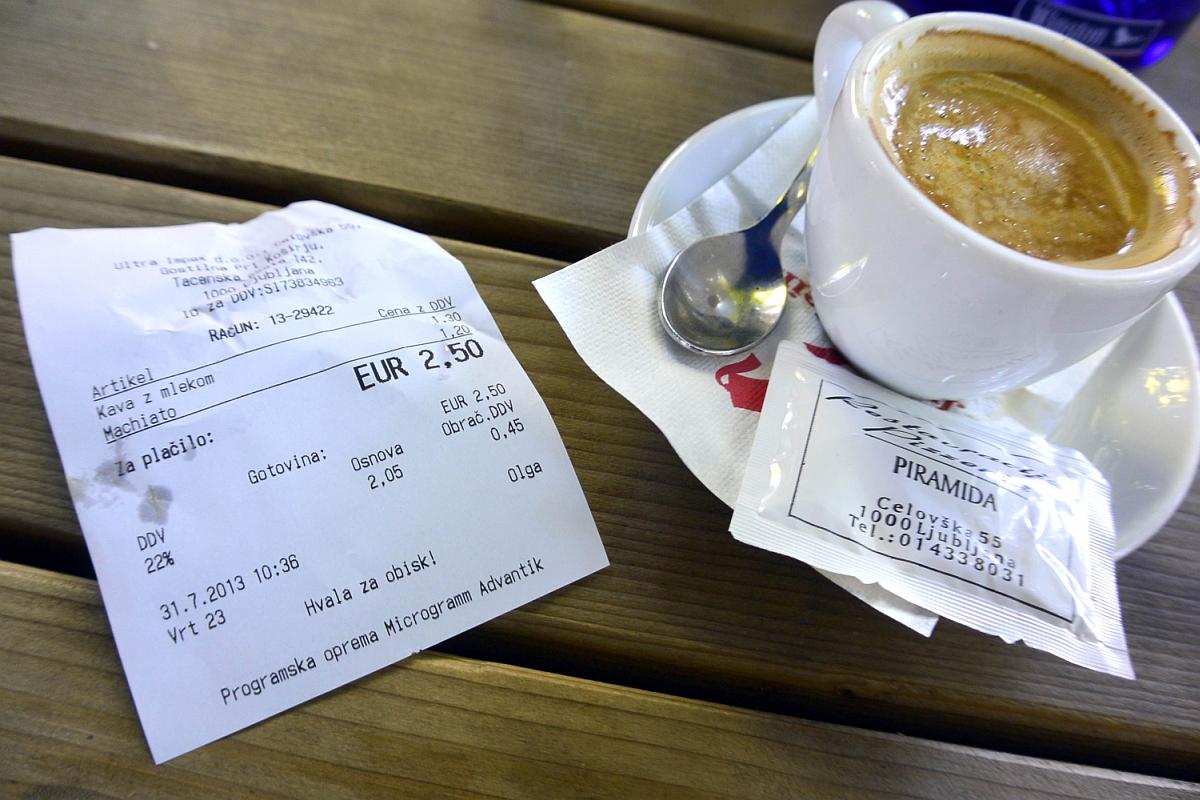

The fact that I am slowly running out of my dear Barcaffé here in England has made me look forward to coming back home for the spring-break even more. I can’t wait to walk the streets of old Ljubljana and have a chat with my friends over a cup of delicious coffee in the Old Town. Well prepared coffee is a piece of art and there is more to coffee than just drinking it – there’s a whole culture around it.
The English can certainly show off with their tea shops, pubs and numerous coffee chains such as Starbucks and Costa. Especially tea shops and pubs are something so… English. Although tea culture has been imported from East Asia, it’s in my opinion one of the best English traditions. With a cup of tea in my hands, even the English weather doesn’t bother me anymore – to be honest, it’s quite romantic to be inside, sip your cup of tea and read a book while listening to the rain drops on the window. Tea is definitely a source for relaxation from everyday stress and I love it how the Japanese ennobled tea into a religion of aestheticism, so called teaism, in the fifteenth century. As Okakura Kakuzō put it down in his famous book, The Book of Tea (which I suggest you to put on your reading list): “Teaism is a cult founded on the adoration of the beautiful among the sordid facts of everyday existence. It inculcates purity and harmony, the mystery of mutual charity, the romanticism of the social order. It is essentially a worship of the Imperfect, as it is a tender attempt to accomplish something possible in this impossible thing we know as life.” It’s about appreciating little things in life, and although some might find such worshipping useless, I believe enjoying little things, finding an aesthetic value in them and being able to make them more meaningful than they appear on the surface, brings little joys and moments of happiness and satisfaction.
Teaism can be well applied to coffee. Unfortunately, coffee culture in England lacks a certain tradition, certain aesthetic value. The streets of London, Brighton and other towns are dominated by big coffee chains that have become popular global brands. Especially the teenagers go there primarily because of the name rather than the quality of coffee. Selfies on Instagram and Facebook from Starbucks normally don’t show people genuinely enjoying their coffee, but pointing on the green logo. There is nothing wrong with it, of course – tastes are different and Starbucks (and other big coffee chains) are indisputably successful in selling the whole coffee experience and establishing themselves as lifestyle brands. Starbucks doesn’t sell just coffee, but the whole idea about hanging out in coffee shops as cool and desirable, discussions between people, social environment tied to local culture, and even fair trade. Although I support such values that do create a certain type of coffee culture and see Starbucks’ marketing strategy as really good, there is something missing for me – it might be the taste of really good coffee (personally I don’t think coffee in big coffee chains in general is very good), it might be the charm of unique small cafés around Europe, or a mix of both. In the end, it all comes down to my belief that coffee culture in Ljubljana is something special and comparable to traditions in France and Italy, which have coffee culture par excellence.
The Old Town, in my opinion, is a perfect location for drinking and enjoying coffee. There is not just coffee, but “coffee with a view” – you can have coffee and at the same time a view over the Ljubljanica River and the Triple Bridge, hide yourself in the small cafés in the tiny cobbled streets or enjoy the panoramic view of Ljubljana from the Skyscraper. Besides, the cafés offer good, proper coffee, carefully brewed and without any watery taste. Each café makes it a bit differently and sometimes the attraction of drinking coffee in Ljubljana is just trying different cafés in the town. I know this is quite a romanticised presentation, but delicious coffee, cute old town centre with its hustle and bustle, coffee tables occupying half width of the walking zones and street musicians do give the town a special spirit. And drinking coffee becomes more than just enjoying the taste of it. It becomes kind of a lifestyle, but not the kind that is deliberately promoted and marketed, but a lifestyle that comes naturally, spontaneously. It is about enjoying the little moments in life which include the taste and smell of coffee and the whole town culture around it.
Each town and each country have their own traditions, customs, special little coffee/tea shops and all the other features, and as a result, a charm. It’s important to appreciate them, and mainly, notice them – a town might reveal itself in a completely different dimension. In the end, it doesn’t matter if one feels that way because of hanging out in Starbucks or sipping a cup of tea in a small, unique and unknown café – what matters is how one “feels the spirit” and immerses in the culture. Appreciating little things certainly brings additional meaning and joy in life, even if just for a few minutes, even if just because of the satisfaction with a good cup or tea or coffee.
Tamara Juričič, University of Brighton





































































